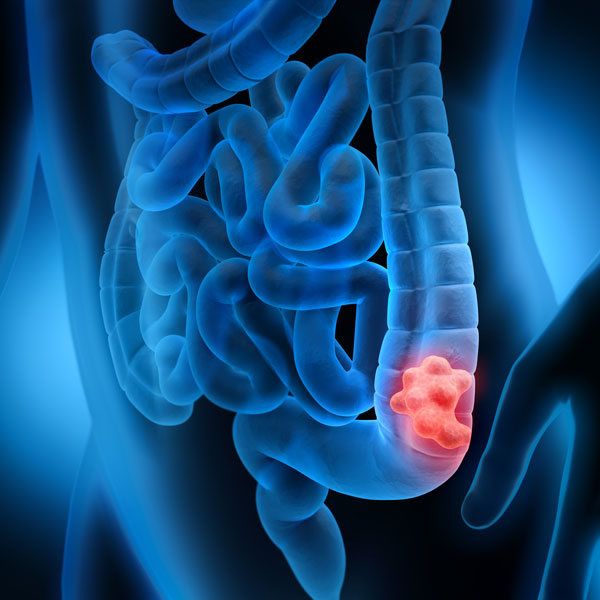Ulcerative Colitis
Ulcerative Colitis Facts
Ulcerative colitis is an inflammation of the lining of the large bowel (colon and rectum). Symptoms include rectal bleeding, diarrhea, abdominal cramps, weight loss, and fevers. In addition, patients who have had extensive ulcerative colitis for many years are at an increased risk of developing colon cancer.

How Is Ulcerative Colitis Treated?
The treatment of ulcerative colitis is medical, using a variety of anti-inflammatory medications and biologic medications. These may be necessary on a long-term basis and if the disease is not well controlled, medications will often need to be changed. “Flare-ups” of the disease can often be treated by increasing the dosage of medications or adding new medications, such as prednisone and 6-Mercaptopurine. Hospitalization may be necessary if a flare-up becomes severe.

When is Surgery Necessary?
Surgery is indicated for patients who have life-threatening complications of inflammatory bowel diseases, such as massive bleeding, perforation, or infection. It may also be necessary for those who have the chronic form of the disease, which fails medical therapy. It is essential the patient be comfortable that all reasonable medical treatment has been attempted before considering surgical treatment. In addition, patients who have long-standing ulcerative colitis and show cancer signs may be candidates for removal of the colon because of the increased risk of developing cancer.
We specialize in minimally invasive surgery for ulcerative colitis and have developed techniques that offer high rates of success for J-pouch procedures. During your office consultation, we will discuss the options and expectations of surgery to help you plan and make the best decision.
What Operations are Available?
Historically, the standard operation for ulcerative colitis has been the removal of the entire colon, rectum, and anus. This operation is called a proctocolectomy and it cures the disease and removes all risk of developing cancer. However, this operation requires the creation of an ileostomy (bringing the end of the remaining bowel through the abdomen wall) and chronic use of an appliance on the abdominal wall to collect waste from the bowel.
The J pouch or ileol pouch anal anastomosis (IPAA) procedure is the newest alternative for the management of ulcerative colitis. This procedure removes all of the colon and rectum but preserves the ability to have a bowel movement from the anus and does not require a lifelong ileostomy. In this procedure, the rectum is replaced with small bowel, which is refashioned to form a small pouch called a J pouch because it fashioned in the shape of a J. Usually, a temporary ileostomy is created, but this is usually closed in 6 to 12 weeks. The J pouch procedure maintains a regular route of defecation, but most patients experience five to ten bowel movements per day. This operation all but eliminates the risk of recurrent ulcerative colitis and allows the patient to have a usual route of evacuation. Patients can develop inflammation of the pouch, which requires antibiotic treatment. In a small percentage of patients, the pouch fails to function correctly and may have to be removed. If the pouch is removed, a permanent ileostomy will likely be necessary.
Which alternative is preferred?
It is essential to recognize that none of these alternatives makes a patient with ulcerative colitis normal. Each option has perceivable advantages and disadvantages, which must be carefully understood by the patient prior to selection, which will allow the patient to pursue the highest quality of life.
Our surgeons at Houston Colon are among a handful of surgeons in the nation who perform the J pouch procedure using robotic minimally invasive surgery. In this approach, there is no large incision across the abdomen. We use modern and advanced robotic technology to perform the entire procedure through small ports. This approach results in much less pain, quicker recovery, lower complication rates, and very high rates of success. Houston Colon surgeons perform the most robotic J pouch procedures in Texas and our expertise is recognized internationally.
